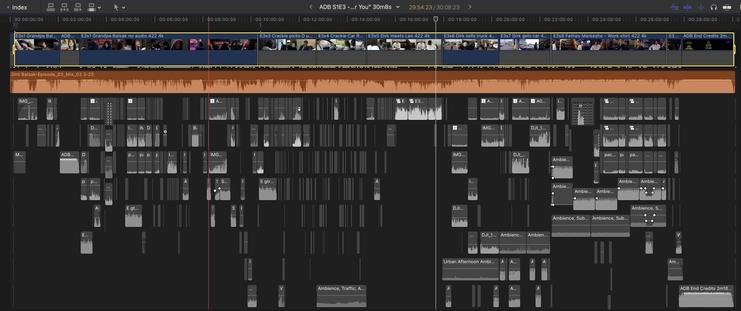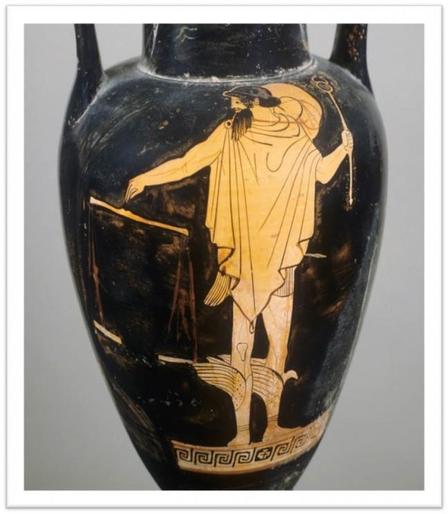2025-12-30 13:40:20
Good Morning #Canada
I hope you're waking up to a scrumptious smell from the kitchen because it's National Bacon Day. While you're waiting for it to finish cooking, here are some facts to salivate over:
- Canadian Bacon, aka Back Bacon or Peameal Bacon, is a Canadian invention. It's also healthier than regular bacon, with far less saturated fats
- 42% of Canadians prefer their bacon crispy while 49% enjoy it limp. I assume 9% eat it raw?
- Winnipeg, home of the Bacon Centre of Excellence, is the Bacon Capital of Canada
- Canadians consume over 50M kilos of bacon annually. I ate my 1.25 kilos this year.
- Canadian Bacon, the movie, was a box office flop, only earning $178K on a production budget of $11M
- The average weight of a pig prior to processing is 111.2 kilos
- Canadian producers exported 18.6M kilos of cured bacon and 202K kilos of back bacon
- There are over 14M hogs in Canada
- 82% of Canadians add bacon on their burgers
- Kevin Bacon is not Canadian
#CanadaIsAwesome #MMMBacon
2026-01-30 17:54:38
Exporting E3 now. Every shot upscaled and repaired where necessary; captions combed through and corrected, timing confirmed; all cast and music credits confirmed; render integrity confirmed by going through frame by frame; project files backed up to 2 external drives.
Waiting on my collaborator's approval, and then I can attach the word FINAL to the file name!
😮💨
#VideoEditing
2025-11-27 17:21:44
Because I do not see it repeated on my TL nearly enough:
To hell with the Trump regime for sending National Guard into DC for absolutely • no • reason • whatsoever • except inflaming the situation. They’ve been desperately waiting this whole time for something to blow up and some troops to get harmed so they’d have an excuse for more escalation. Hurting troops was the goal. The •goal•.
And now Epstein’s off the front page. They’ve got to be over the moon.
2026-01-28 09:20:01
On Wednesdays, I decide how much I can afford to give this week, and who to give it to. I've made my decisions for this week; it's hard, and I shall give more than i can really afford, because the need is so great.
But these are people I cannot give to, whom I feel guilty for not being able to give to. Please, if you can, do what I cannot. Help them.
#Gaza
2025-12-20 23:22:58
So in another dream I just woke up from, I was talking to someone about "the idea problem" (that it's becoming harder to monitize ideas, from a vox article written by an AI cooked reporter).
https://www.iheart.com/podcast/105-it-could-happen-here-30717896/episode/executive-disorder-white-house-weekly-46-313675864/
Basically, I was arguing that the majority of inventions target men because patriarchy puts economic control in men's hands. As men have started to help more with childcare, there have been more inventions related to childcare. (I don't have any idea if this is true. Seems legit, but I'm just relating my dream. I think I was also oversimplifying a bit to "men" and "women" because of my audience, but anyway it was a dream.) There's actually more low-hanging fruit, I pointed out, related to making care work easier.
So I argued that the real problem was a failure to invest in research into solving that problem. Today there are all these boondoggles built around killing people. What if, instead of all this government research into killing people, we dumped a ton of money into making it easier to support a household? That would be great for the economy. (Being asleep, I seem to have forgotten that working people need money.)
In the blur of being just awake I started thinking about how you could kickstart the US economy by taking the money from the AI boondoggle and other autonomous murder bots and create something like a program to build robots for housekeepers. You'd still be funding tech with government money, so the same horrible people get paid, but you're now actually solving real problems. It wouldn't even matter if it was a boondoggle, honestly. Just dumping money into something other than murdering people is good enough.
I imagined first if there was a program to fund a robot housecleaner, like robot dog with AI some laundry pickup, that would be provided, free of charge, to help people with children. It would work the same as the military boondoggle where a private company makes the government buy a piece of hardware from them and then also pay them to service it for some number of years. But instead of that hardware sitting around waiting to kill someone, it would be getting brought to people's houses to help them.
Then I thought, hey, you could even boost the economy more if you just had government funding for doulas and housecleaners and paid them a living wage. Hey, you could really kickstart the economy by nationalizing healthcare and including doula support as part of all births. Oh, and you could also just include the optional household help for families with children until the kids turn 18.
None of this is perfect (I don't actually think most of this is possible from any state), but the point is that it's actually wildly easy to figure out all kinds of ways to invest in the economy and monitize ideas as long as you aren't entirely focused on the same old "make money from spying on people and killing them." Funny that. Like they said in the podcast, maybe "finding ideas" isn't the problem.
Hope you enjoyed the weird semi-awake brain dump/rant.
2025-11-17 08:52:05
The implications are interesting enough when we apply this to systems like capitalism or national governments, but there are other very interesting implications when applied to systems like race or gender.
Like, as a cis man the only way I can be free to express and explore my own masculinity is if the masculinity I participate in is one which allows anyone the freedom to leave. Then I have an obligation to recognize the validity of nom-masculine trans identity as a necessary component of my own. If I fail to do this, then I trap myself in masculinity and allow the system to control me rather than me to be a free participant in the system.
But if it's OK to escape but not enter, that's it's own restriction that constrains the freedom to leave. It creates a barrier that keeps people in by the fear that they cannot return. So in order for me to be free in my cis masculine identity, I must accept non-masculine trans identities as they are and accept detransitioning as also valid.
But I also need to accept trans-masc identities because restricting entry to my masculinity means non-consensually constraining other identities. If every group imposes an exclusion against others coming in, that, by default, makes it impossible to leave every other group. This is just a description of how national borders work to trap people within systems, even if a nation itself allows people to "freely" leave.
So then, a free masculinity is one which recognizes all configurations of trans identities as valid and welcomes, if not celebrates, people who transition as affirmations of the freedom of their own identity (even for those who never feel a reason to exercise that same freedom).
The most irritating type of white person may look at this and say, "oh, so then why can't I be <not white>?" Except that the critique of transratial identities has never been "that's not allowed" and has always been "this person didn't do the work." If that person did the work, they would understand that the question doesn't make sense based on how race is constructed. That person might understand that race, especially whiteness, is more fluid than they at first understood. They might realize that whiteness is often chosen at the exclusion of other racialized identities. They would, perhaps, realize that to actually align with any racialized identity, they would first have to understand the boot of whiteness on their neck, have to recognize the need to destroy this oppressive identity for their own future liberation. The best, perhaps only, way to do this would be to use the privilege afforded by that identity to destroy it, and in doing so would either destroy their own privilege or destroy the system of privilege. The must either become themselves completely ratialized or destroy the system of race itself such being "transracial" wouldn't really make sense anymore.
But that most annoying of white person would, of course, not do any such work. Nevertheless, one hopes that they may recognize the paradox that they are trapped by their white identity, forced forever by it to do the work of maintaining it. And such is true for all privileged identities, where privilege is only maintained through restrictions where these restrictions ultimately become walls that imprison both the privileged and the marginalized in a mutually reinforcing hell that can only be escaped by destroying the system of privilege itself.
2026-01-26 02:50:47
You can see the simmering rage in Walz.
https://fed.brid.gy/r/https://bsky.app/profile/did:plc:477rnpqffrg4vayxgmu22v5u/post/3mdbjazpbr22o
2025-12-18 05:40:17
Trump sought to pin any worries about high inflation on his predecessor, Joe Biden.
“Eleven months ago, I inherited a mess,
and I’m fixing it,” Trump said.
“We’re poised for an economic boom, the likes of which the world has never seen.”
His holiday wishes came at a crucial time as he tries to rebuild his steadily eroding popularity.
Public polling shows most U.S. adults are frustrated with his handling of the economy as
inflation picked up after his tari…
2025-11-19 08:11:05
It's the Day of Hermes aka Mercurius Day aka #Wednesday! 🐏
"It is said that after death, the tutelary god (daimon) of each person, to whom he had been allotted in life, leads him to a place where the dead are gathered together [i.e. Hermes]; then they are judged and depart to the other world with the guide."
Plato, Phaedo 107c
🏛
2026-01-22 16:58:03
Volodymyr Zelenskyy cautioned Europe in a speech at Davos,
accusing leaders of being in “Greenland mode”
as they waited for leadership from Donald Trump on Ukraine and other geopolitical crises
rather than taking action themselves.
“Just last year, here in Davos, I ended my speech with the words
-- Europe needs to know how to defend itself,”
Zelenskyy said in a speech at the World Economic Forum.
“A year has passed, and nothing has changed.”
He…



